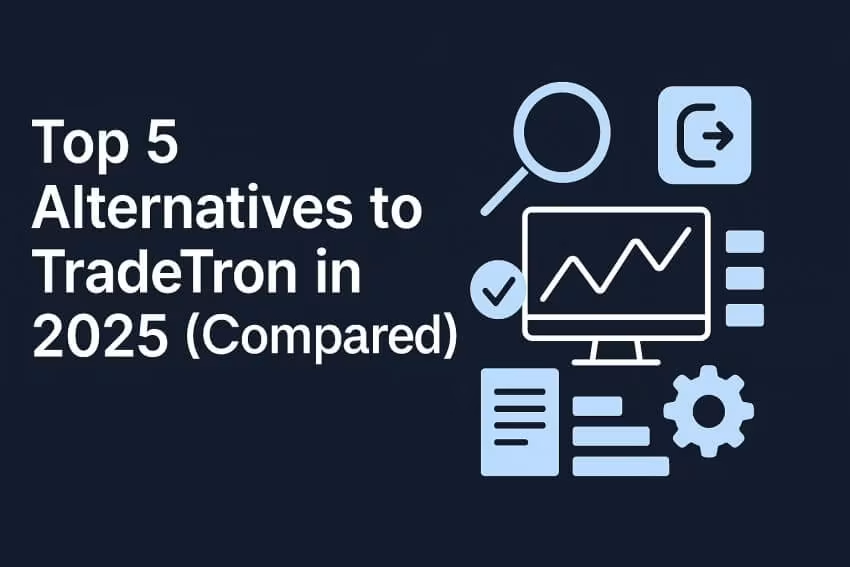In the fast-paced world of algorithmic trading, where a few seconds can make or break a trade, ethical considerations play a crucial role in ensuring market integrity and investor confidence. As algo trading continues to gain prominence in India's financial landscape, traders must navigate a complex web of ethical challenges while harnessing the potential of automated trading strategies. Let us explore the nuanced ethical considerations and provide guidelines for traders operating on various algo trading platforms in India
Understanding Ethical Considerations for Algo Traders in India
Market Manipulation
Algo trading platforms, like uTrade Algos, must be vigilant against practices that could manipulate market prices or distort fair market mechanisms. Techniques such as spoofing, layering, and wash trading not only violate regulatory norms but also erode trust in the integrity of the market.
Insider Trading
Traders must adhere strictly to regulations prohibiting insider trading. Accessing and trading on non-public information can lead to unfair advantages and undermine the principles of market fairness and transparency.
Transparency and Disclosure
Transparency is key to maintaining trust within the financial ecosystem. Algo traders should disclose the nature of their trading strategies, risk management practices, and any potential conflicts of interest to relevant stakeholders, including clients, regulators, and exchanges. Effective risk management is essential to mitigate the impact of algorithmic errors or unforeseen market events. Algo trading platforms must implement robust risk controls, such as position limits, stop-loss mechanisms, and circuit breakers, to prevent catastrophic losses and uphold market stability.
Guidelines for Ethical Algorithmic Trading in India
Compliance with Regulatory Framework
Algo traders must stay abreast of regulatory developments and ensure compliance with the Securities and Exchange Board of India (SEBI) guidelines. This includes obtaining necessary approvals, adhering to prescribed risk management norms, and promptly reporting any irregularities to regulatory authorities.
Algorithmic Transparency
While proprietary algorithms may remain confidential, traders should strive to provide transparency in their trading strategies. This entails disclosing the logic behind algorithmic decisions, risk parameters, and performance metrics to enable stakeholders to assess associated risks and ensure alignment with ethical standards.
Fair Market Practices
Algo traders should refrain from engaging in practices that distort market fairness or disrupt price discovery mechanisms. Strategies that exploit latency differentials, create artificial market imbalances, or manipulate order book dynamics to gain an unfair advantage should be avoided to maintain a level playing field for all market participants.
Continuous Monitoring and Evaluation
Algo traders must establish robust monitoring and evaluation processes to assess the effectiveness and ethical implications of their trading strategies. This involves conducting regular reviews, stress testing algorithms under various market conditions, and promptly addressing any identified deficiencies or vulnerabilities to uphold ethical standards and regulatory compliance.
Ethical Client Engagement
Algo traders should prioritise ethical client engagement practices to build trust and foster long-term relationships. This includes providing clear and accurate information about the risks and potential returns associated with algorithmic trading, ensuring the suitability of strategies for client objectives, and maintaining transparency in all client interactions.
Professional Development and Education
Continuous professional development is essential for algo traders to stay abreast of evolving market trends, technological advancements, and regulatory changes. By participating in relevant training programs, workshops, and industry conferences, traders can enhance their expertise and ethical awareness, ensuring responsible and sustainable trading practices.
Unethical Algo Trading Consequences for Algo Traders in India
If trading on algorithmic trading programs is not conducted ethically, it can have significant negative consequences for both market participants and the broader financial ecosystem:
- Market Manipulation: Unethical algo trading in India can distort market prices and undermine fair market mechanisms. This manipulation can lead to artificial volatility, making it difficult for investors to make informed decisions and causing disruptions in market stability.
- Investor Losses: Unethical algo trading can result in losses for investors who may fall victim to deceptive trading practices. For example, spoofing can trick investors into making trades based on false signals, leading to financial losses when the market corrects itself.
- Loss of Trust: When unethical practices are uncovered, it erodes trust in the integrity of the financial markets. Investors, both individual and institutional, may lose confidence in the fairness of the market, leading to reduced participation and liquidity.
- Regulatory Scrutiny: Regulators closely monitor trading activities to ensure compliance with ethical standards and regulatory requirements. Non-compliance can result in regulatory investigations, fines, and penalties, damaging the reputation of the traders involved and their firms.
- Market Instability: Unethical algo trading can contribute to market instability and systemic risk. Artificial volatility and liquidity imbalances caused by manipulative trading practices can disrupt the functioning of financial markets, potentially triggering broader economic consequences.
- Legal Consequences: Engaging in unethical algo trading practices may result in legal repercussions, including civil and criminal penalties. Insider trading, market manipulation, and other forms of misconduct are subject to strict regulatory enforcement and legal sanctions.
Overall, unethical algo trading undermines the principles of fairness, transparency, and trust that are essential for the proper functioning of financial markets. Ethical considerations are paramount for traders operating on various algorithmic trading programs. By adhering to the guidelines outlined here, traders can uphold ethical standards, maintain regulatory compliance, and contribute to the integrity and stability of the market ecosystem. As algo trading, on platforms like uTrade Algos, continues to evolve, prioritising transparency, fairness, and risk management will be essential for fostering trust and sustainability in India's dynamic trading environment.












